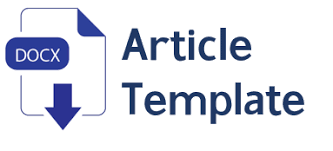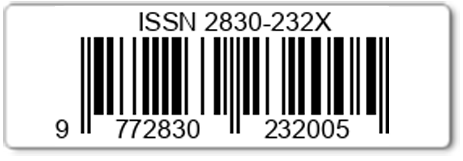Pengembangan Kurikulum Pendidikan Agama Islam Berbasis Nilai: Telaah Teoretis Rahmatan lil ‘Alamin dalam Pendidikan Tinggi
DOI:
https://doi.org/10.59086/jkip.v4i2.767Keywords:
Pendidikan Agama Islam, Kurikulum Berbasis Nilai, Rahmatan lil ‘Alamin, Pendidikan Tinggi, Integrasi KeilmuanAbstract
This article explores the urgency of developing a value-based Islamic Religious Education (PAI) curriculum grounded in the concept of rahmatan lil ‘alamin (a mercy to all creation). The aim is to construct a holistic and contextually relevant curriculum model that addresses contemporary global challenges such as identity crises, epistemological disintegration, and religious extremism. This study employs a qualitative, conceptual approach based on a comprehensive review of literature. Sources include academic journals, books, curriculum policy documents, and recent research on value-based curriculum development, the integration of knowledge, and the educational application of rahmatan lil ‘alamin principles. The study reveals that current PAI curricula tend to emphasize normative-textual approaches, often lacking contextual relevance and failing to respond effectively to humanitarian, ecological, and social issues. By contrast, positioning rahmatan lil ‘alamin as a curriculum paradigm enables the integration of spiritual, ethical, and scientific dimensions—resulting in a more adaptive, inclusive, and transformative educational model. The proposed curriculum model contributes to the development of students’ character, social responsibility, and interdisciplinary competence. It is applicable not only within Islamic higher education institutions but also within broader higher education settings seeking to cultivate ethical, globally minded graduates through value-oriented pedagogy and institutional policy. This article offers a novel theoretical contribution by reconstructing Islamic education through the paradigm of rahmatan lil ‘alamin. It proposes a systematic framework that redefines the orientation of Islamic Religious Education toward values-based, integrative, and socially responsive learning in the global era.
References
Achruh, A., & Sukirman, S. (2024). An Analysis of Indonesian Islamic Higher Education Institutions in the Era of Globalization. International Journal of Learning, Teaching and Educational Research, 23(9), Article 9. http://ijlter.org/index.php/ijlter/article/view/11099
Adha, H. N., & Prawironegoro, D. (2024). Human Values in Ismuba-Based Rahmatan Lil-Alamin Education. Journal of Education and Teaching (JET), 5(1), Article 1. https://doi.org/10.51454/jet.v5i1.322
Alfarisy, S. J., & Iswandi. (2025). INTEGRATION OF CHARACTER EDUCATION VALUES IN ISLAMIC RELIGIOUS EDUCATION LEARNING AT SCHOOL. Multidisciplinary Indonesian Center Journal (MICJO), 2(2), Article 2. https://doi.org/10.62567/micjo.v2i2.660
Anggraini, M. C. D., Asrori, M., & Yahya, M. (2025). Internalisasi Nilai-Nilai Pelajar Rahmatan Lil Alamin dalam Mata Pelajaran Akidah Akhlak di MTsN 5 Blitar. Akhlaqul Karimah: Jurnal Pendidikan Agama Islam, 4(1), Article 1. https://doi.org/10.58353/jak.v4i1.256
Azyumardi Azra. (2023). Islamic studies in Indonesia, from IAIN to UIN: Strengthening the Wasatiyyah Islam. In Islam, education and radicalism in Indonesia (pp. 196–207). Routledge.
Bariroh, S. H., & Hamami, T. (2023). Model Pengembangan Kurikulum Pendidikan Agama Islam Integratif di SMP Islam Yogyakarta. ULIL ALBAB : Jurnal Ilmiah Multidisiplin, 2(7), Article 7. https://doi.org/10.56799/jim.v2i7.1802
Chadidjah, S., Kusnayat, A., Ruswandi, U., & Arifin, B. S. (2021). IMPLEMENTASI NILAI-NILAI MODERASI BERAGAMA DALAM PEMBELAJARAN PAI: Tinjauan Analisis Pada Pendidikan Dasar Menengah dan Tinggi. Al-Hasanah : Jurnal Pendidikan Agama Islam, 6(1), 114–124. https://doi.org/10.51729/6120
Dardiri, M. A., & Su’aidi, M. Z. (2024). Integrated Curriculum in Islamic School: Integration of Knowledge and Parental Involvement. Intelektual: Jurnal Pendidikan Dan Studi Keislaman, 14(3), Article 3. https://doi.org/10.33367/ji.v14i3.6322
Fatimah, S., & Aisyah, N. (2024). MODERNIZATION OF THE ISLAMIC CURRICULUM; CREATING A BALANCE BETWEEN TRADITION AND INNOVATION FOR FUTURE GENERATIONS. PROCEEDING OF INTERNATIONAL CONFERENCE ON EDUCATION, SOCIETY AND HUMANITY, 2(2), Article 2.
Hastutie, G. (2024). Kurikulum Merdeka dan Profil Pelajar Rahmatan Lil’Alamin pada Pembelajaran Rumpun PAI di Madrasah dan PTAI. Indonesian Research Journal on Education, 4(4), Article 4. https://doi.org/10.31004/irje.v4i4.1097
Hidayah, N., Tobroni, T., & Nurhakim, N. (2023). Rahmatan lil’alami Islamic Education Curriculum Reconstruction: Healthy and Safe for Students’ Spiritual and Physical Development. Belajea: Jurnal Pendidikan Islam, 8(1), Article 1. https://doi.org/10.29240/belajea.v8i1.7208
Ilyas, E. L., Setyaningrum, N., & Sumarni, S. (2022). A Model of Inclusive Education Curriculum in Islamic Education Institutions: A Case Study in Banten Province, Indonesia. Jurnal Pendidikan Agama Islam, 19(2), Article 2. https://doi.org/10.14421/jpai.2022.192-02
Imamah, I., Rofiq, A., & Nawafil, M. L. (2025). The concept of Rahmatan lil ’Alamin in inclusive islamic education in the perspective of teachers and learners. Al-Fikru: Jurnal Pendidikan Dan Sains, 6(1), Article 1. https://doi.org/10.55210/al-fikru.v6i1.2035
Irham. (2025). Policies and patterns of integration of science and religion in Indonesian Islamic higher education. Higher Education. https://doi.org/10.1007/s10734-024-01378-9
Ishaac, M., Basir, A., & Fuady, M. N. (2024). PROFILE OF PANCASILA RAHMATAN LIL ’ALAMIN STUDENTS FROM AL-QUR’AN HADITH PERSPECTIVE: ANALYSIS OF THOMAS LICKONA’S CHARACTER EDUCATION THEORY. PROCEEDING OF INTERNATIONAL CONFERENCE ON EDUCATION, SOCIETY AND HUMANITY, 2(1), Article 1.
Islam and Climate Justice. (n.d.). GreenFaith. Retrieved June 14, 2025, from https://greenfaith.org/islam-and-climate-justice/
Ismail Raji Al-Faruqi. (1989). Islamization of Knowledge. International Institute of Islamic Thought.
Khoeron, K., Khozin, K., & Nurhakim, M. (2024). Rekontruksi Kurikulum PAI Rahmatan Lil ‘Alamin bagi Peserta Didik. TSAQOFAH, 4(2), 1077–1089. https://doi.org/10.58578/tsaqofah.v4i2.2473
Khosiin, K., Tobroni, T., & Khozin, K. (2023). The Rahmatan Lil-’Alamin Paradigm as an Approach to Islamic Education in Muhammadiyah Institutions. Progresiva : Jurnal Pemikiran Dan Pendidikan Islam, 12(01), Article 01. https://doi.org/10.22219/progresiva.v12i01.29382
Mashudi, M., & Hilman, C. (2024). Digital-Based Islamic Religious Education: A New Orientation in Enhancing Student Engagement and Spiritual Understanding. Global International Journal of Innovative Research, 2(10), Article 10. https://doi.org/10.59613/global.v2i10.342
Muttaqin, M. A., Noviani, D., & Sudarto, S. (2025). Konsep Desain Pengembangan Kurikulum dan Relevansinya pada Pendidikan Islam. El-Idare: Journal of Islamic Education Management, 11(1), Article 1. https://doi.org/10.19109/elidare.v11i1.25336
Nasr, S. H. (1996). Religion and the Order of Nature. Oxford University Press.
Normawati, S. (2025). Menakar Kurikulum Pendidikan Agama Islam di Era Pendidikan Modern. QOSIM : Jurnal Pendidikan Sosial & Humaniora, 3(2), Article 2. https://doi.org/10.61104/jq.v3i2.1064
Nurdin, A., Hendra, H., Tobroni, T., & Khozin, K. (2023). Islam Rahmatan Lil Alamin Paradigm and Its Implications for Strengthening Student Profiles in Nusantara. FENOMENA, 15(2), 103–120. https://doi.org/10.21093/fj.v15i2.8008
Nurmela, S., Restu, Y. M., Sari, M. S., Badrudin, & Zaqiah, Q. Y. (2025). Integration of Rahmatan Lil Alamin Student Profiles in the Madrasah Aliyah Curriculum. Al-Afkar, Journal For Islamic Studies, 8(2), Article 2. https://doi.org/10.31943/afkarjournal.v8i2.1438
Nuryahman, M., Majeed, M. K., & Zulaiha, D. (2024). ISLAMIC EDUCATION MANAGEMENT: INTEGRATION OF HOLISTIC APPROACHES IN FORMAL AND NON-FORMAL EDUCATION. Leadership: Jurnal Mahasiswa Manajemen Pendidikan Islam, 6(1), Article 1. https://doi.org/10.32478/leadership.v6i1.2772
Pramita, S., Saifundi, Halimah, S., & Ridha, M. (2025). Prinsip-Prinsip Pengembangan Kurikulum Pendidikan Agama Islam. Tasqif: Journal of Islamic Pedagogy, 2(1), Article 1. https://doi.org/10.51590/tsqf.v1i1.8
Sari, Y. P., Nugraha, J., & Basri, H. (2024). Technology-Based Islamic Education: Building Inclusive, Adaptive, and Future-Ready Learning Foundations. Jurnal Inovasi Pendidikan Agama Islam (JIPAI), 4(1), Article 1. https://doi.org/10.15575/jipai.v4i1.40150
Setiawan, R. A. (2024). Model Pendidikan Agama Islam Berbasis Rahmatan Lil ‘Alamin dalam Merespon Fase Industri 4.0: Studi Kasus di Universitas Islam Indonesia (UII). Journal of Education and Islamic Studies (JEIS), 1(2), Article 2. https://doi.org/10.62083/eh58rc02
Setiawan, R. A. (2025). Developing Rahmatan lil ’Alamin-Based Islamic Religious Education in Indonesian Higher Education. Unisia, 43(1), Article 1. https://doi.org/10.20885/unisia.vol43.iss1.art1
Suhendi, S. (2024). Islamic Education Curriculum in the Era of Society 5.0: Between Challenges and Innovation. International Journal of Science and Society (IJSOC), 6(2), Article 2. https://doi.org/10.54783/ijsoc.v6i2.1073
Utari, D., Abidin, M., Yuniar, Y., & Junaidah, J. (2025). Integration of General Knowledge and Religion Policy for the Emergence of Integrated Islamic Schools. International Journal of Education and Literature, 4(1), Article 1. https://doi.org/10.55606/ijel.v4i1.217
Wardhani, S. P., Bedi, F., & Fitri, T. A. (2024). Manajemen Pendidikan Islam dalam Era Digital: Strategi Kurikulum Berbasis Nilai Islam untuk Menghadapi Tantangan Globalisasi. Al-Idarah : Jurnal Kependidikan Islam, 14(2), 164–175. https://doi.org/10.24042/alidarah.v14i2.24561
Downloads
Published
How to Cite
Issue
Section
License
Copyright (c) 2025 Rahmadi Agus Setiawan

This work is licensed under a Creative Commons Attribution 4.0 International License.
Tutwurihandayani Jurnal Ilmu Pendidikan
Publisher Lembaga Riset Ilmiah
© 2023

This work is licensed under a Creative Commons Attribution 4.0 International License.


















